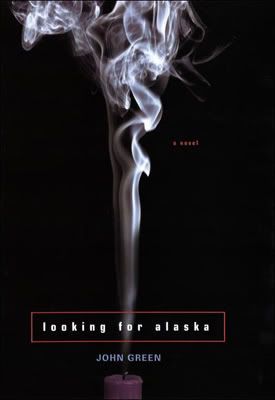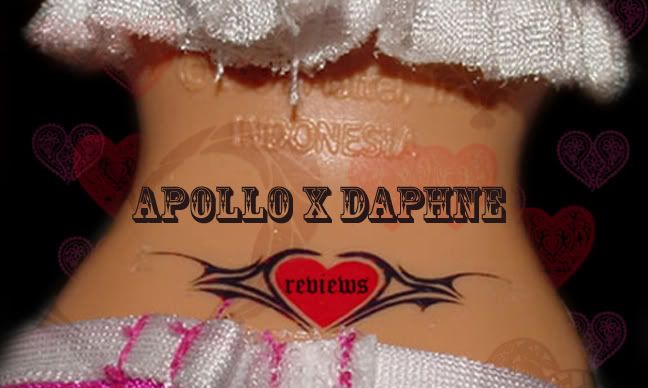
Absolute brilliance.
Those are the adjectives I would choose to describe John Green's first novel, Looking for Alaska. I read it for the first time the year it came out, in the summer of '05. I turned the final page knowing that it would be one of my favorite books ever. And I was right.
Looking for Alaska is about Miles Halter, a 100% normal kid from Suburbia who decides to step into the Great Perhaps (his words--or rather, the famous last words of a dead author) and go to an elite prep school his senior year of high school. And then it's about Teenage Delinquency and All The Bad Things Miles Does With His New Friends, which is why it's getting banned from school vitae right and left. Wait, that sounds familiar--wasn't The Catcher in the Rye viewed as pornographic when it was first published? Admittedly, Alaska does have some graphic sexual scenes, but if you truly want to investigate the contemporary American teenager, then they have to be there.
The group consists of Chip Martin, known as The Colonel for his war-like approach to prank-planning; Takumi, hyper-active and talented at extemporaneous rapping; and Alaska, the title character. She's enigmatic, gorgeous, and unattainable, every teenage boy's fantasy; she quotes Vonnegut, quickly goes from manic to melancholic, and spouts casually cynical truths about the world as she sees it. Miles is taken in by this ragtag bunch of prank-planners and drug-abusers, dubbed "Pudge" (a misnomer), and begins his new life.
Miles is an incredibly sympathetic narrator who is fully aware that he is "normal," aside from his penchant for memorizing the last words of the famous, and his ability to quietly observe from the sidelines. We understand his desire to be greater than himself, to be extraordinary and romantic. And because Miles falls in love with the brazen Alaska, so do we, the reader. We find her irresistible. We see only strange snippets of her, and not enough to piece together the whole picture and decide the answer to the question she continues to ask throughout the book, the last words of the dying Simon Bolivar: "How will I ever get out of this labyrinth?" Or to puzzle out the mystery that Miles and his friends desperately try to solve at the end of the story.
And while it may be romantic and tragic, the book is genuinely laugh-out-loud funny. Alternating between cutting sarcasm and deadpan, Miles recounts the pranks as they occur, and the various miscreant behavior he and his friends become involved in will undoubtedly perpetuate a grin from the reader. The prose itself is sophisticated, yet inviting.
The book is a meditation on life and death; there's no other way to compress those themes. It's an incredible introspection, and it also explores the idea of true love versus loving the idea of a person. It's, in short, a masterpiece. The credit goes to John Green, who is a compelling, incredibly entertaining human being himself. In fact, the book is shaped by events which took place in Green's own life, including his attendance of a boarding school much like Culver Creek, and two student deaths during that time. You can read an excellent interview with him about the book here.
Paramount Pictures has the rights to the movie; it's supposedly coming out in 2010. And yes, I will be there at the premiere at my nearest movie theater, in a tent the night before if necessary.

No comments:
Post a Comment